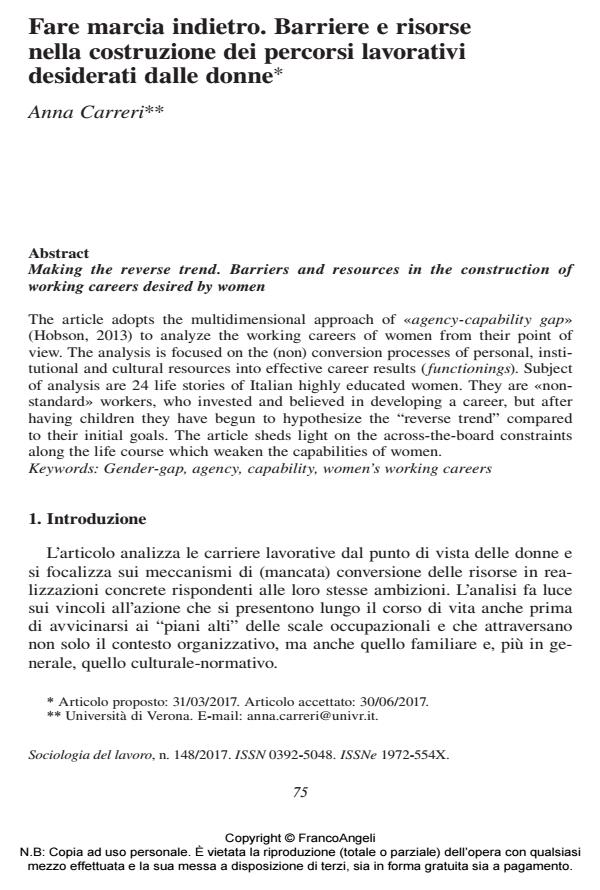Making the reverse trend. Barriers and resources in the construction of working careers desired by women
Journal title SOCIOLOGIA DEL LAVORO
Author/s Anna Carreri
Publishing Year 2017 Issue 2017/148
Language Italian Pages 16 P. 75-90 File size 116 KB
DOI 10.3280/SL2017-148005
DOI is like a bar code for intellectual property: to have more infomation
click here
Below, you can see the article first page
If you want to buy this article in PDF format, you can do it, following the instructions to buy download credits

FrancoAngeli is member of Publishers International Linking Association, Inc (PILA), a not-for-profit association which run the CrossRef service enabling links to and from online scholarly content.
The article adopts the multidimensional approach of «agency-capability gap» (Hobson, 2013) to analyze the working careers of women from their point of view. The analysis is focused on the (non) conversion processes of personal, institutional and cultural resources into effective career results ( functionings). Subject of analysis are 24 life stories of Italian highly educated women. They are «nonstandard » workers, who invested and believed in developing a career, but after having children they have begun to hypothesize the "reverse trend" compared to their initial goals. The article sheds light on the across-the-board constraints along the life course which weaken the capabilities of women.
Keywords: Gender-gap, agency, capability, women’s working careers
Anna Carreri, Fare marcia indietro. Barriere e risorse nella costruzione dei percorsi lavorativi desiderati dalle donne in "SOCIOLOGIA DEL LAVORO " 148/2017, pp 75-90, DOI: 10.3280/SL2017-148005